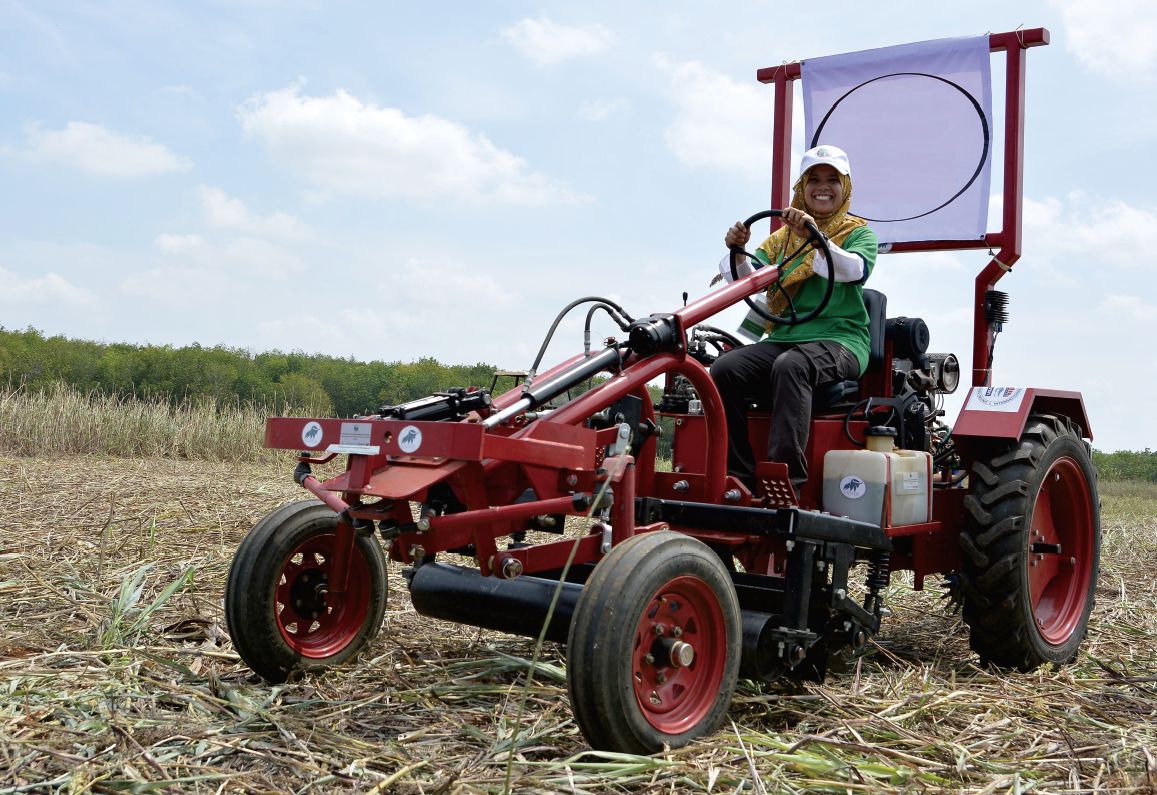Sustainable Agricultural Mechanization for “Empowering People and Ensuring Inclusiveness and Equality”
CSAM capacity building and research activities address several aspects of sustainable agricultural mechanization related to the empowerment of farmers, and promote good practices for integrated and inclusive approaches.

Empowering Smallholder Farmers through the promotion of affordable and appropriate mechanization solutions
Smallholder farmers are fundamental to the agricultural sector in Asia; they produce the vast majority of food in these regions, but are still facing poverty in large numbers. They are more vulnerable to the impacts of climate change and market trends, also because of their limited capacity to invest in adequate equipment. Providing affordable and appropriate machinery for these farmers can improve working and livelihood conditions, as well as provide solutions to the vast challenges that hamper agricultural production.

Empowering farmers through ICT-enabled sustainable agricultural mechanization solutions
New technologies such as self-driving tractors, precision input application, agricultural drones, and mobile applications for hiring machinery have shown the potential to transform the agricultural mechanization sector into an agent for change. By making machinery more available, precise and efficient, new technologies provide farmers the means to respond to a larger scope of issues that are hampering agricultural production nowadays, as well as giving them direct access to markets.

Inclusive approaches for improved and sustainable farming practices
Burning of straw residue to clear fields for the next crop is a key concern for air quality and human health in the region. CSAM facilitates the collaboration between farmers and their cooperatives with local policy agencies and experts to improve current practices according to the farmers’ needs, and safeguard air quality while improving crop production, enhancing rural livelihoods, and contributing to rural revitalization.

Agricultural mechanization in support of women and elderly workers in agriculture
Demographic changes in the region, rapid shifts in the labour market and rural to urban migration are contributing towards a larger proportion of women and elderly workers in agriculture. Promoting access to mechanization solutions can improve their productivity, income and working conditions.
